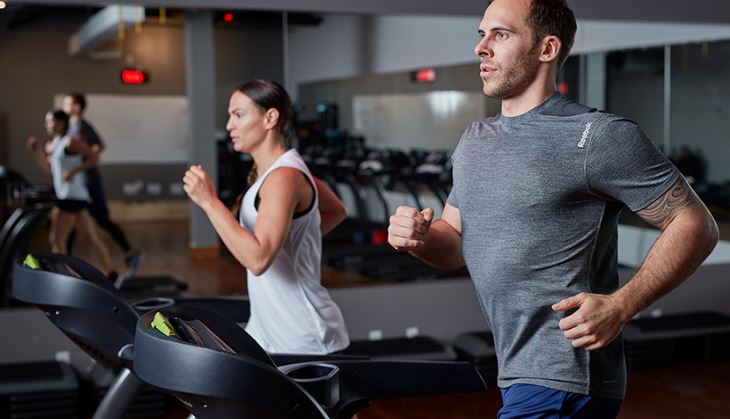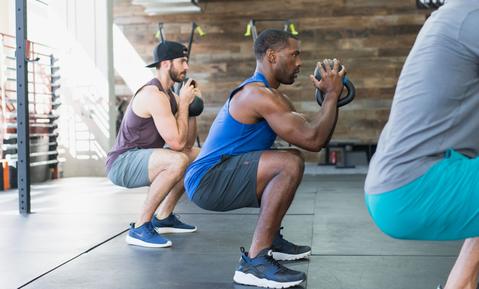Hot saunas have been used for entertainment and relaxation for thousands of years due to the health benefits they provide. This is a synopsis of a study that appeared in the Mayo Clinic's annual journal the year before. The studies reported here show that sweating it out in a sauna has many of the same positive health effects as exercising, making it more than just a pleasant way to unwind.
The experts say this is because your body is tricked into having the same physiological response to a sauna session as it would to actual exercise. This may set in motion a chain reaction of physiological responses that ultimately helps shield the body from a wide range of chronic illnesses.
What is happening is as follows: Doing a sauna session is physiologically analogous to climbing a steep hill. A sauna is often a small wooden room with a pit of hot pebbles in the centre that maintains a very high temperature. When your heart rate reaches the training zone (120 to 150 beats per minute), your body produces thermogenic and anabolic substances including noradrenaline and growth hormone (bpm). More experienced swimmers can enjoy the warm water for far longer than the average person, who often only spends five to twenty minutes there.
The sauna is a popular place for gym-goers to unwind after a workout, and if your gym has one, you might even want to join them. Possibly you do this to celebrate your success after a workout. Yet, let's be honest: heat won't prevent muscular soreness or hasten your recuperation. For optimal effects from your training, though, you should use the sauna before you get started.
FAQs About Sauna
If you're not properly hydrated, you shouldn't stay inside a sauna for longer than 20 minutes, as you're risking dehydration. However, if you're fit, healthy and hydrated, you can stretch this out into a significantly longer period of time, in the area of 30 - 45 minutes, even an hour.
Depending on the type of sauna you are using, you may be able to take your phone into a sauna, however, bear in mind that high temperatures and humidity/moisture can cause damage.
Often, we overlook the side effects of these therapies, which could damage hair cells, eventually. While a sauna can dry out your hair, deep conditioning can help lockin the moisture and keep the scalp hydrated. Also, saunas will never cause permanent damage. But it might leave your hair frizzy and unmanageable.
Simply sitting in a sauna can enable you to decrease excess fat is not a reality. A sauna does not allow you to lose weight; it temporarily eliminates quickly replaceable water from the body. In addition, excessive heat makes your body sweat and sweating can make you lose fluid in the form of water.
And even here, there are some rules to follow. According to the classic Finnish method, there is a short bath in ice-cold water, which can be replaced by a shower in cold or lukewarm water, waiting at least two minutes after leaving the sauna.
Physical therapist Patrick Walsh tells Outside Online:
"When you recuperate from exercise, you should notice that your heart rate returns to normal," he explains. "Sitting in a sauna for more than 5 minutes is going to keep your heart rate high. it's really a sort of passive exercise; therefore, it is really going to hinder your body from starting the recovery process."
It is a better idea, according to him, to spend a couple of minutes in the sauna before your workout. This may in fact help you feel warmed up and ease some of the immediate muscle discomforts you are experiencing.
A sauna can be helpful in starting the process of warming up, which involves literally warming up your body. However, a sauna cannot totally replace a warm-up that is based on exercise; it can, however, assist get the process started.
In addition, according to Harvard Health Watch, the average individual will lose one pint of sweat after a quick visit to a sauna. After leaving the sauna, individuals are advised to consume a large amount of water in order to replenish the fluids that they have lost. Therefore, if you find that you are already dehydrated after an exercise, it is not in your best interest to sweat out an additional pint.
Why use a sauna?
In the first place, using a sauna is recommended for a variety of different reasons. The primary reasons are the positive effects that they have on both one's physical and emotional health. Saunas help you unwind mentally. They provide you with a pause in your day during which you are free to do nothing more than sit, reflect, and unwind. Bathing in a sauna may be quite beneficial, especially when combined with an ambiance that is toasty and inviting.
Saunas offer a wide variety of health advantages. To begin, they cause your body to relax. letting your muscles loosen up so they may become more flexible. Your skin will be cleansed, toxins removed, your heart will be strengthened, your immune system will be boosted, and you will lose weight as a result of all of these benefits (they accomplish this by compelling your body to increase its rate of metabolic cooling, which results in the burning of additional calories).
In addition to this, there have been studies that suggest utilizing a sauna can boost your levels of human growth hormone. Because of this, your muscles are able to expand in size, recover from fatigue more quickly, and simply perform better.
Considering all of these advantages, it is a no-brainer to make frequent use of saunas. They have the potential to significantly improve both your emotional and physical well-being.

How to use sauna bathing to boost your workouts?
Are you curious about experiencing it for yourself? The following is a description of how you can benefit from using a sauna:
If you want the best possible outcomes, you should try to go to the sauna for seven consecutive days in a row. On the first day, you might only be able to withstand the activity for five to ten minutes, but by the 7th day, Sims advises that you should be able to perform it for approximately 25 to 30 minutes.
Due to the fact that their hormonal cycles cause them to have differing thermoregulatory thresholds, it is possible that women might benefit most from a "heat primer" when attempting to acclimate to the sauna. Therefore, they might wish to give the sauna a try for five to ten minutes at a time, take a break outside for five minutes, and then go back inside for the remainder of the session, which should not exceed thirty minutes.
Because your resting heartbeat will be elevated while using the sauna (about 140 beats per minute), you should strive to keep your workouts during that week less strenuous. According to what Sims advises, if you want to avoid overtraining, you should schedule more of a recovery or endurance week.
A good rule of thumb is to try to go into the sauna within the first half hour after finishing your workout. Because some degree of dehydration is necessary for the changes that this method elicits, it is important to refrain from drinking anything other than your protein recovery drink during these thirty minutes, as Sims explains. As an alternative method of cooling off, you may try pouring some water over your neck.
After you have finished using the sauna, you should gradually rehydrate yourself over the course of the next two to three hours. According to Sims, consuming the drink in sufficient quantities immediately following a sauna session will prevent the kidneys from reacting negatively to heat stress. If you're going to take a shower later, make sure it's a warm one, and give yourself at least ten minutes to cool down if you prefer a colder one. Sudden and significant shifts in temperature can cause you to feel lightheaded.
Benefits of Sauna Before Workout
Before beginning an exercise routine, there are those who enjoy going to the sauna first. The body may be warmed up and the muscles can be loosened up with the help of a brief session in the sauna before beginning a workout. This is something that needs to be done before beginning your workout.
Even though taking a sauna bath before working out isn't extremely common, there are still certain perks that could be beneficial to both your body and your workout. The most significant advantage is that saunas enable you to get your body to a more comfortable temperature before beginning your workout. Your muscles will be able to relax and become more flexible as a result of this. Which will ultimately lead to an improvement in your performance while you are actually exercising.
If you decide to utilize a sauna for this purpose, then we strongly suggest that you stretch your muscles while you are in the sauna. Because of this, even greater flexibility and improved performance will be possible.
Although there are a few advantages to using a sauna prior to your workout, there are also a few disadvantages that can occur if you aren't careful. To begin, you don't want to sweat too much before you begin your workout. Because of this, you run the risk of becoming dehydrated, which will restrict your body's potential. Therefore, make sure to drink a lot of water and limit your time in the sauna to no more than 5 minutes at a time.
Second, going to the sauna can be a very calming experience, as well as one that is frequently quite enlightening and purifying. They are particularly effective at calming one's mind as well as one's body. If you want to have a lot of energy for your workout, then you shouldn't relax your body too much before you start working out. This will help you get the most out of your activity. This will prevent your body and mind from reaching their full potential and will merely leave you feeling exhausted.
In addition, you can stretch your muscles during a brief session in the sauna before beginning your workout. This is especially beneficial for the muscles that will be put through the most strain during the next workout.
A sauna is a type of steam chamber that allows people to enjoy both wet and dry heat experiences. It is a small room that is closed off on all sides and is used to generate steam by pouring water over heated rocks. The heat and steam in the sauna provide a number of benefits, each of which is unique to the individual. The advantages of using a sauna before working out are as follows:
The sauna is beneficial for calming the body and helping to loosen up tight muscles. As a result, it is an effective means of warming up before any form of physical exercise.
The warm environment of the sauna causes the body temperature to rise ever-so-slightly, which is beneficial not only for exercising but also for other activities.
The heat causes the blood arteries to expand, which results in the heart being able to pump blood effectively. Hence, a sauna is even seen as a modest cardiovascular exercise.
The steam that you breathe in while you're in the sauna also speeds up your metabolism. It is believed that the sauna can aid in weight loss for a number of reasons, and this is one of them.
The presence of steam causes an increase in the amount of perspiration produced. In case you were unaware, one of the benefits of sweating is that it assists in the removal of toxins from the body and, as a result, aids in the revitalization of the skin.
One of the most effective means of relaxing for the body as a whole is to take part in a sauna session.
Find the Right Balance: It is essential that you find the right balance and that you do not spend an excessive amount of time in the sauna before beginning your workout.
A session in the sauna has the ability to relax not only the body but also the mind. However, you will need to maintain vigilance while you are working out.
The use of a sauna causes you to perspire and raises your heart rate at the same time. This is wonderful, but you shouldn't indulge too much in it because you still need to get some exercise. If you don't fix this, your performance won't be very good.
To summarize, going to the sauna before your workout is perfectly acceptable as long as you limit your time there. It should actually just be done to help warm the body up because that is its main purpose.
In addition to that, make sure you drink enough water before, during, and after your sauna session. When you're working out, preventing dehydration is one of the most critical things you can do for yourself.

How can saunas improve your performance?
Even if you are very highly trained, you can still benefit from taking a sauna bath; this is true despite the fact that the health benefits alone are enough to warrant doing so. A group of highly trained marathon runners sat in a sauna for 30 minutes following their four weekly workouts. As a result, they saw a 32% increase in their performance on a run-to-exhaustion test, and a 91% decrease in their time required to complete a 5K race in just 3 weeks.
The perks of a sauna soak are constantly at your disposal. Some people like to use a sauna before a workout to get their muscles warmed up, which can be good but shouldn't substitute a proper warm-up, but it may be even more effective to use the sauna after a workout, when you are still slightly dehydrated.
Stacy Sims, Ph.D., an exercise scientist, claims that mild dehydration reduces blood volume. The human body responds to a hot environment, like a sauna, by sending blood to the skin to create perspiration, which cools the body down and keeps it from overheating.
Since there is only so much blood to go around, the kidneys encourage the production of EPO (yeah, the performance-enhancing stuff) and plasma volume, which both boost your blood volume and, thus, your performance.
Benefits of Sauna After Workout
However, after they've finished their workout, the vast majority of people like to relax in a sauna. This makes perfect sense given that a fatigued mind (and body) will naturally desire to relax, which is something that a sauna may assist with.
However, is there any benefit to using a sauna after you've worked out? The following are a few of the purported advantages of using a sauna after you have finished your workout.
There have been a lot of studies done that point to the fact that taking a sauna bath after working out may be very advantageous to both the body and the mind of the person doing the activity. To be more specific, one of the most significant advantages that saunas offer is the fact that they cause you to sweat heavily. Sweating causes your body to release a large quantity of waste and toxins, which it does so naturally.
A session in the sauna might help your body achieve a more natural state of cleanliness. The accumulation of metabolic waste in your joints and muscles after a workout is a very major reason why this is so. Your body will manage those wastes by sending them via your blood, which will ultimately bring them to your kidneys if you just let them cool down after you finish your workout and let it cool down.
If you want to be as well as you possibly can, it is a good idea to sweat out those toxins instead of relying on your kidneys to filter them out because it is easier on your body. If you spend a significant amount of time in a sauna, your body will begin to transfer blood from your internal organs to your skin in an effort to keep you from overheating. After that, the waste is transported to your perspiration, which, when it evaporates from your skin, helps to cool your body down.
In addition to this benefit, saunas provide additional advantages to your body. They relieve the tension in your muscles so that you do not experience cramping as a result of your workout (which also helps with after-workout soreness). They cause your heart rate to elevate, which in turn strengthens your heart and improves blood flow throughout your body. They are also beneficial to weight loss, as a result of which you will burn even more kcal simply by sitting.
In general, going to a sauna after you've worked out is a very good idea because it provides numerous benefits for your body. This is something that should be done after each and every session.
The research synthesis found that the frequency with which people went to saunas was inversely proportional to the probability of dying from serious heart disease and overall mortality. Those who went to the sauna at least 4 times per week had a risk for dementia that was lowered by 66% when compared to those who only visited once per week. In addition to this, it was shown that frequent visits to saunas helped reduce arthritis-related inflammation as well as accompanying discomfort.
One more advantage? If you already exercise on a regular basis, you may reap even greater benefits from using a sauna. The researchers came to the conclusion that an increased level of cardiovascular protection can be achieved by combining good fitness levels achieved through regular aerobic exercise with frequent sauna bathing.

Muscle Relaxation
After a strenuous workout, a session in the sauna not only allows the brain to rest but also assists in relaxing the body's muscles.
Your muscles will benefit from the general recuperation process as a result of this. Before beginning your workout, you give your body a warmup.
Going to a sauna before you work out prepares your body for the sweating that will eventually occur throughout your workout. When you enter an infrared sauna, the infrared rays heat your body directly, which kickstarts your circulation and makes it easier for you to move into an active condition. After getting warmed up, you'll be in a better position to perform the genuine sweating that needs to be done because it will be easier for you to do. In the process, you position yourself to have a more efficient session of calorie burning.
Remove Toxins
More perspiration will result from remaining seated in the heat for an extended period of time. This contributes to the further decomposition of the lactic acid that is present in your body.
It is also beneficial for removing various waste products that have accumulated in the joints and muscles of the body as a result of exercise.
A Prolonged Workout
The heat of a sauna also causes the pulse rate to remain elevated throughout the experience. Your workout will last longer because of this because it is equivalent to a light aerobic session.
The primary reason why many persons would advise against using a sauna after an exercise is due to the fact that the heart rate should gradually return to normal after finishing a workout. Using a sauna after a workout could prevent this gradual return to normal from occurring.
In contrast, a session in the sauna usually has the opposite effect.
While this may be the case, it is essential to keep this in perspective. If you've just finished a very strenuous workout and have a really elevated heart rate, it's probably not a good idea to spend the next hour in a sauna. In such a scenario, a relatively brief session in the sauna might be beneficial for helping to calm the body and the mind.
The process of recovering from exercise and returning one's heart rate to normal levels after exercising might be thought of as a progressive one. A little session in the sauna can be beneficial to the process.
Therefore, rather than moving from really intense to normal, it could be a good idea to squeeze in a short session in the sauna after your (hard) workout. This will allow your body (and heart rate) to gradually recover from the intense workout.
In the beginning, it is advised to limit one's time spent in a sauna to no more than twenty minutes, as stated by Dr. Lawrence Wilson, MD. After a few times of utilizing a sauna successfully, this period can be extended all the way up to forty minutes. You shouldn't go to the sauna more than once a day at the most. Utilizing a sauna first thing in the morning or shortly before going to bed provides the most health benefits. Your workout should take place either before or after using the sauna, but not immediately thereafter.
After exercise, staying in a sauna for a while can improve your endurance. A study that lasted for three weeks and was carried out at the University of Otago in Dunedin, New Zealand, found that the blood volume of long-distance runners increased after they had spent thirty minutes in a sauna immediately following their workout. As a result, my endurance for the subsequent workout was significantly improved. However, athletes who were already at the peak of their physical fitness levels participated in the research. Taking this into account during your workout routine is important.
You get a genuine cool down after the workout.
After your workout, a session in the sauna will only serve to raise your body temperature even further. Even while it's not a negative thing in and of itself, when you're trying to beat the heat, the last thing you want to do is have to deal with it. Stretching can help ease discomfort in your muscles and joints, and it's something you should definitely consider doing. Your body temperature will return to normal, your heart rate will return to normal, and you will experience improved relaxation if you begin with a session in the sauna and continue with your workout and stretching immediately afterward. It also provides you with the opportunity to put your newly acquired sauna for sale through its paces right immediately.

You get the benefits faster
You will be able to experience the benefits of the sauna session more quickly if you complete it in advance. You will be able to purge the toxins from your body, enhance your circulation, and lighten your skin all at the same time. After some time has passed and your body has been accustomed to perspiration, you won't have any qualms about sweating after that point. You also alleviate some of the discomforts in your muscles and joints at that precise moment, which prepares you for an aggressive workout. You are now in better shape to perform repetitions and make the necessary adjustments to an exercise rhythm!
It is critical to only use the sauna after you have finished your workout, not before. The heat's effects would prevent you from getting a good workout today. Although some people find that a quick trip to the sauna before the event is beneficial, prolonged sessions are counterproductive in a number of ways, including the following:
- An excessive level of relaxation, both in terms of the body and the mind. When exercising on relaxed muscles, you increase the risk of sustaining an injury. When you start your workout, you should not be in a state of calm relaxation but rather a state of heightened attentiveness emotionally.
- Preheating. Because of the head start provided by the sauna, you will sweat more during the activity, but you won't be expending any additional effort, which is what causes you to burn calories.
- Dehydration. When you start to sweat before you even start exercising, your body is already beginning to lose fluids. Your productivity during the workout will suffer as a result of this.
Following your workout, the sauna provides a number of vital benefits:
- Sweat. During exercise, waste products that accumulate in your muscles and joints can be transported by your blood to the top of your skin, where they can be expelled through sweating. This process is called "carrying out."
- Heat. Since you have just finished working out, your muscles have worked hard enough to deserve the relaxation that comes from the heat being applied to the entire body in the sauna.
- Heart. Your heart rate will increase to levels that are comparable to those reached during moderate exercise when you are in the sauna. This indicates that the benefits of your cardio activity will continue to accrue during your session.
Would you use a sauna to improve performance?
In addition, according to Sims, using the sauna as a post-workout recovery method is a secret weapon for endurance athletes who compete in high temperatures or at high elevations. It helps boost performance at high-altitude events, where the mountain air is very dry and dehydrating, as well as resets your thermoregulation thresholds, so hot temperatures feel less harsh. Additionally, it resets your thermoregulation thresholds.
She advises that "Because it's very similar to intensive activity, you need to use it properly." "The basic rule is for sessions lasting between 25 and 30 minutes, with the water temperature not exceeding 165 degrees, although you should only remain in the water for as long as you feel comfy. It's not even supposed to be a contest!
Sauna Before vs. After Workout
If you could only pick one of these options, taking a sauna bath after your workout would be the one to go with every time. Because of this, you won't overwork your body before your workout, which is the main reason for doing this. It is not a good idea to overexert your body before working out since you want your body to be at its optimal performance state while you are working out.
In spite of this, we continue to advise making use of a sauna before your workout, provided you do so in a responsible manner. This means that you are just in the sauna for around five minutes at a time in order to stretch and warm up your body. If you maintain it within this time limit, you will be able to maximize the potential that your body possesses without having to worry about becoming exhausted first.
The final conclusion is that saunas do, in fact, come with some health benefits; you just need to use them in an intelligent manner in order to reap those benefits. The specialists who spoke with Outside underlined that saunas may be wonderful places for pleasure, and even if they aren't useful, they probably won't cause any significant harm, especially if you use them after you've been exercising. (With the following exception: if you are pregnant or have cardiac disease, you should discuss your sauna use with your physician, who may advise you to limit the length of your visits.)
Whether one should utilize a sauna before or after a workout is greatly dependent on the person, as well as the intensity and kind of workout being performed.
If you want to use a sauna before your workout, it's perfectly acceptable to do so as long as you keep the session brief and intense. As soon as you start perspiring, it is time to get out of the sauna and get prepared for your workout. It is helpful for the initial warming up, but once you start sweating, you should get ready for your workout.
Utilizing a sauna as a post-workout recovery method assists in relaxing the body and muscles while also gradually bringing the user's heart rate down to more optimal levels. In addition to this, it assists in the removal of lactic acid and any other waste products that have been produced by the body as a result of the activity.
Do what you believe will work out best for you, as long as you constantly pay attention to what your body is trying to tell you. This is the best piece of advice anyone can give you.
Conclusion
Hot saunas have been used for thousands of years due to their health benefits, and studies show that sweating it out in a sauna has many of the same positive health effects as exercising. Saunas offer a variety of health benefits, such as relaxation, skin cleansing, heart strengthening, immune system boosting, and weight loss. They can also improve both emotional and physical well-being. Sauna should be used for seven consecutive days in a row to acclimate to heat stress, and should be done within the first half hour after finishing a workout. Saunas can be beneficial to both your body and your workout, but they can also lead to dehydration and decreased performance.
To avoid this, make sure to drink a lot of water and limit your time in the sauna to no more than 5 minutes. A sauna is a type of steam chamber that provides a variety of benefits, such as calming the body, increasing perspiration, and speeding up metabolism. It is important to find the right balance and not spend too much time in the sauna before beginning a workout. Sauna baths can improve performance, reduce dehydration, and help relax after a workout. Taking a sauna bath after working out can be beneficial to both the body and mind, as it causes the body to release a large quantity of waste and toxins, as well as relieve tension and improve blood flow.
Sauna bathing can help reduce dementia risk, muscle relaxation, reduce arthritis-related inflammation, and increase cardiovascular protection by combining regular aerobic exercise with frequent sauna bathing. Using a sauna after an exercise can help to calm the body and the mind, but it should be limited to no more than twenty minutes and done first thing in the morning or shortly before bed. Stretching after a workout can help ease discomfort and improve relaxation, but it is important to only use the sauna after the workout to avoid the heat's effects. The sauna provides a number of benefits, such as sweat, heat, dehydration, heart rate, and improved performance for endurance athletes. It is recommended for sessions lasting between 25 and 30 minutes, with the water temperature not exceeding 165 degrees.
Saunas can provide health benefits, but must be used in a responsible manner to maximize potential. Saunas can be used before or after a workout, depending on the intensity and kind of workout.
Content Summary
- Hot saunas have been used for entertainment and relaxation for thousands of years due to the health benefits they provide.
- The experts say this is because your body is tricked into having the same physiological response to a sauna session as it would to actual exercise.
- This may set in motion a chain reaction of physiological responses that ultimately helps shield the body from a wide range of chronic illnesses.
- Sitting in a sauna for more than 5 minutes is going to keep your heart rate high.
- A sauna can be helpful in starting the process of warming up, which involves literally warming up your body.
- How to use sauna bathing to boost your workouts?Are you curious about experiencing it for yourself?
- If you want the best possible outcomes, you should try to go to the sauna for seven consecutive days in a row.
- According to what Sims advises, if you want to avoid overtraining, you should schedule more of a recovery or endurance week.
- In addition, you can stretch your muscles during a brief session in the sauna before beginning your workout.
- To summarize, going to the sauna before your workout is perfectly acceptable as long as you limit your time there.
- In addition to that, make sure you drink enough water before, during, and after your sauna session.
- However, is there any benefit to using a sauna after you've worked out?
- In addition to this benefit, saunas provide additional advantages to your body.
- In general, going to a sauna after you've worked out is a very good idea because it provides numerous benefits for your body.
- If you already exercise on a regular basis, you may reap even greater benefits from using a sauna.
- Going to a sauna before you work out prepares your body for the sweating that will eventually occur throughout your workout.
- After exercise, staying in a sauna for a while can improve your endurance.
- After your workout, a session in the sauna will only serve to raise your body temperature even further.
- You get the benefits fasterYou will be able to experience the benefits of the sauna session more quickly if you complete it in advance.
- Would you use a sauna to improve performance?In addition, according to Sims, using the sauna as a post-workout recovery method is a secret weapon for endurance athletes who compete in high temperatures or at high elevations.
- If you could only pick one of these options, taking a sauna bath after your workout would be the one to go with every time.
- In spite of this, we continue to advise making use of a sauna before your workout, provided you do so in a responsible manner.
- This means that you are just in the sauna for around five minutes at a time in order to stretch and warm up your body.
- The final conclusion is that saunas do, in fact, come with some health benefits; you just need to use them in an intelligent manner in order to reap those benefits.
- If you want to use a sauna before your workout, it's perfectly acceptable to do so as long as you keep the session brief and intense.






